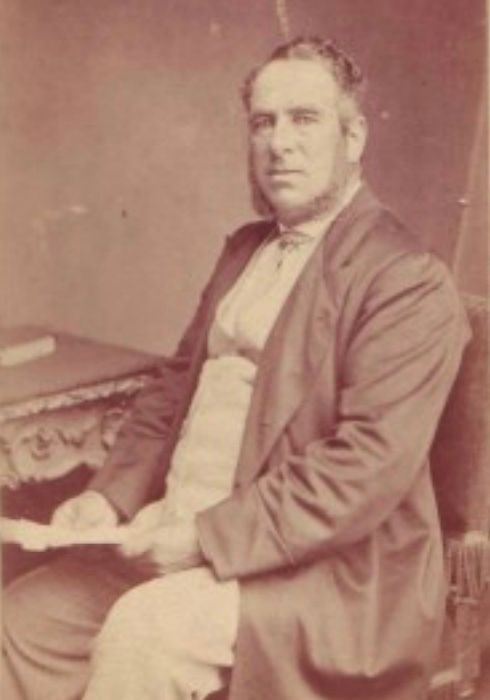A 289 Paris, 15th January 1944 (sic)
from Odette Esnault
Almost certainly written in January 1945, given the mention of a four and a half year gap and the details in the letter of events right through 1944. Given also the contents of the next letters she sent
My dear Nancy,
Your very chatty letter took me back to the long conversations we used to have long ago ! Four and a half years of being separated by the war, that is such a large part of our lives, isn’t it! I was very worried about all you had to organize, when you went. So I was relieved to hear that you have been able to regroup close to family members. Your parents are still fit and healthy despite a number of serious problems you refer to. As for you, you’re still full of funny comments and in control: I can recognize you in all that! Georges is like you, he’s able to be ‘captain of the ship’. Things are less hectic now. I have had a hard time since then, because of François. Fortunately, the baby was only two weeks premature (we had made a mistake over the due date), and he weighed only 2.8 kilos. Even though he was normal (physiologically speaking), he had a difficult start in life. We left Nogent…in a car driven by the solicitor’s wife, Mrs R… …to where her father-inlaw was a doctor. We left with six in the car, which was piled high with suitcases as well. Almost straight away, my waters broke, but I said nothing to the family until we arrived in D… It was a long journey without incident. I was put to bed. We were wanting to reach Flers, where my husband had a factory and from there…we were off to Corrèze! [far away in the centre of France] Because nothing was happening, I was taken in a van to Flers the next morning. Part of the town was being evacuated. There were still two doctors there: I was told that I was going nowhere. All the roads were blocked with people and traffic. So I went into the maternity home situated near the station and stayed there for two days. François was born on the 18th in the morning. I had been very uncomfortable all night. They had three women in childbirth. You could hear sirens sounding. At any moment the town could have been bombed. Luckily it wasn’t. The armistice was our salvation. After convalescing for 11 days, I left the maternity home. We were offered a small house and we stayed three weeks there. François wasn’t making any progress despite changes of milk. We didn’t lack for anything. There was a big butter market at St P…- meat, bread, fruit, oranges. We bought the rest of the layette and a bed. Georges went back to Nogent to see what had been going on there. Everything was all right, but we had to go back there quickly, as the Germans were taking over all empty houses. I spent three months convalescing in Nogent. François was gaining weight at last. He has never really been able to tolerate milk and was sick until he was ten months old. He was difficult to feed until he was two, but he was healthy, all pink and fair-haired. We went back to Paris and life became harder. With a child, I have not been able to put myself first. I had to get up at 5 am to change the baby, give him a bottle or some soup. I’d go down…to queue for half or quarter of a litre of milk…I’d go back up to give him a bottle, then go back down again. Then I had to take the baby out for a walk. There was no proper heating. The sheets could be dried one by one in front of a tiny heater. The odd parcel arriving would break the daily boredom. I returned to Nogent in 1941. In January Aunt Alice fell ill. She went into hospital in April and was then moved to a Bonneval hospital in May. In June, François was baptized. In July Aunt Suzanne was ill. I was on my own with François, so I arranged for her to go into hospital in Nogent, then moved her to Bonneval in September. I am sick to death of holidays in Nogent. So I look for tenants, so that I can avoid having my house requisitioned. The year after, we have our holidays in A…, in the Loire valley. François gets measles and they make me leave the hotel. Back in Paris, the bombing gets worse and we get so tired. Finally, the following winter, we have more heating. But, at every airraid alarm, we go down to the cellar. In July 1943 I was told that the aunts could leave hospital. The electric shock treatment had made them better. I spent four months looking for a nursing home run by nuns…a relatively inexpensive one. I found one in H… (Seine-et-Oise), near Conflans. Both of them settled in well. 2nd April 1944 – Bernard died suddenly after two heart attacks, one after the other. We were absolutely devastated. We are keeping it from Mummy who is having treatment again and on the mend. Bernard’s body was brought back to Nogent. I kept Mummy with me for four days and then slowly and gradually told her about her sad loss. Contrary to what we had thought, she didn’t react much. She cocooned herself in a sort of unfeeling indifference. That was best for her, but my sister-in-law was deeply affected. This terrible, brutal blow has been so hard for her to get over. 20th April Noisy le Sec was bombed. 22nd April – it was La Chapelle. The whole district was in a panic, with great fears for the Batignoles district [warehousing district and goods area to east of Paris]. In the evening people leaving in droves. – spent the night in the Métro. We slept for two nights in a friend’s house and, then, on 11th June, we went to stay with Bernard’s wife. Air-raid warnings during the night. We went down to the cellar twice. We were exhausted. The bombings really affected me. I go with François to Senlis to stay with my cousins and enjoy their delightful hospitality for three months. Good food – Georges came to see me every two weeks… 1st June I find that Mummy is better, and with her sister in H… Go back to Senlis. 3rd July two light planes drop bombs 50 m from my cousins’ house and the surrounding areas were also hit by bombs. On 12th, Senlis is bombed, so we leave and are back in Paris by the 15th. – two days before the uprising, then, the whole week, guns going off all around and fighting nearby…from day to day. Then barricades, finally, the miracle of liberation. Then German bombs on the 27th – some of the 17th arrondissement was hit. Finally Paris is released from its prison, things are improving and we can breathe again. We`have no news from H…nor any from friends. After a month, normal life is resumed. Gradually you feel safer and more confident. Food supplies are improved…but winter is approaching…no heating…we must hang on. François has ear-ache and needs a lot of looking after. But 1944 ends on a bad note for us. Aunt Alice fell ill again. We put her in hospital near us. Five weeks of treatment will put her back on her feet, but…then Aunt Suzanne follows suit. She takes Aunt Alice’s place in hospital. She is already improving. We are hoping for the same successful outcome. This treatment suits them remarkably well. This is what has happened during the last four and a half years with all their various trials and tribulations. Simone has been particularly worried about her father. She doesn’t write much – I have had only three or four letters from her. It’s her cousin, Jeanine, who is the connection there. She paid a high price during this war, when she lost her husband in May 1940. Since then she has been living with her in-laws not far from here, which means that we can see one another regularly. She was often in danger. In December 1944 – she was under surveillance – she had to stay well away from the family home for six months, only seeing her children at other people’s houses. She was also fearful for her father – she had had a double misfortune in 1941, when she lost her beloved mother who was 58 years old. Her daughter is already a young lady of 14. The little one is now seven. She can’t go back home. I have not had any recent news of Mrs Daupeley. I rarely go to Nogent, not more than once a year and then, only there and back, on business. I have only heard of the conviction of Miss Louise Choisnard (Simone’s former neighbour) to ten years hard labour for collaborating. Mr B… is in prison as well. I suppose it’s more a matter of conduct. The teacher, Héritier, who wrote the book… left with the Germans. But he left behind him disciples and young persons who will pay the price. Like the Komaroff boy from the Town Hall, who has been condemned to death. It was very sensitive of you to not tell us some news, so as not to attract too much attention. I have found this lack of communication dreadful. I had your letter on the 10th. It had been opened, but not censored. I see that your work involves a lot of responsibility. All those figures must give you a headache. I know that British women are doing their civic duty and I think that things will end up the same here, since we are again at war and everyone must play their part. People are finding friends again, who had been scattered far and wide by the war. Everyone is marked by the years of hardship. Domfront and Flers, where we took refuge in 1940, no longer exist. My friend, Helena, from Belgium, came to France in 1941. She was with her husband in Cherbourg! Her four children were with a relative in Vernon! They came through successfully. She had a very tough week in Cherbourg, but was protected most of the time. The children were reunited with their parents. A fifth child arrived in December (making four sons and a daughter). The daughter of GJ got married in 1942. Three weeks later her husband was working in Germany and had only two periods of leave. She is awaiting his return…but when will it happen? It’s the prisonersof-war or those deported to labour camps who are really the ones who have had the worst time in the war. Enclosed are some photos of François. The little man gives his Aunt Nancy a big hug, even though he doesn’t know her. (He is asking me who I am writing to so furiously). My husband, Mummy and various aunts ask to be remembered to you. For you, from me, the fondest of love and friendship for ever, with the hope that I shall see you before long. I know that I must possess my soul in patience.
Love Odette






